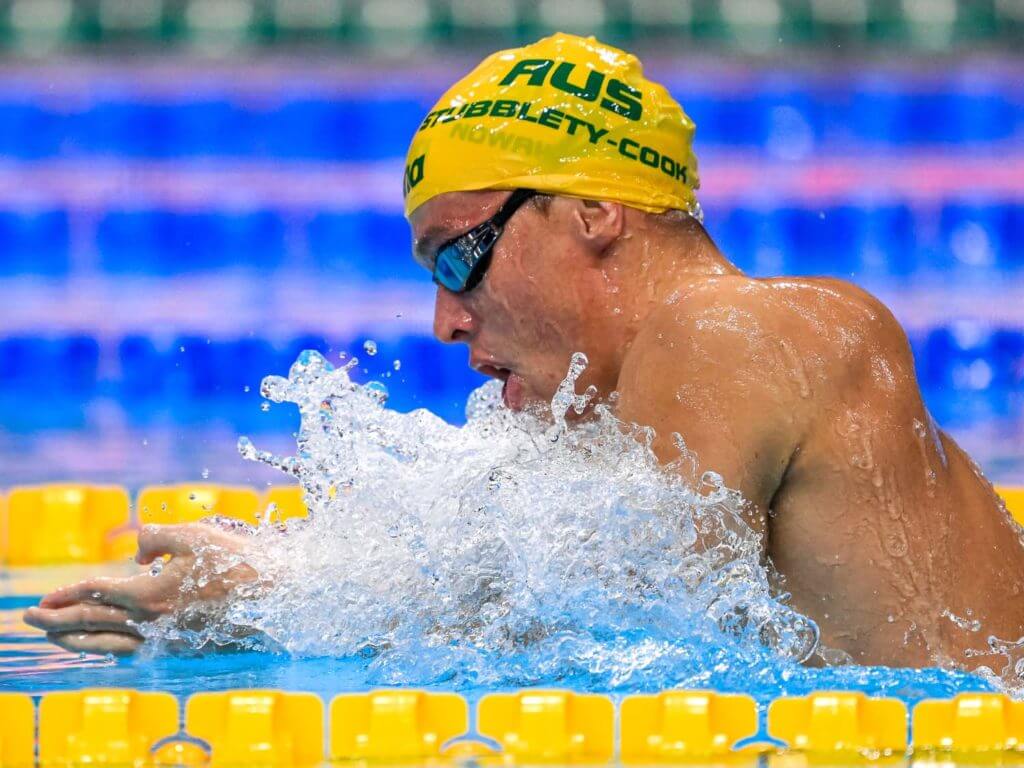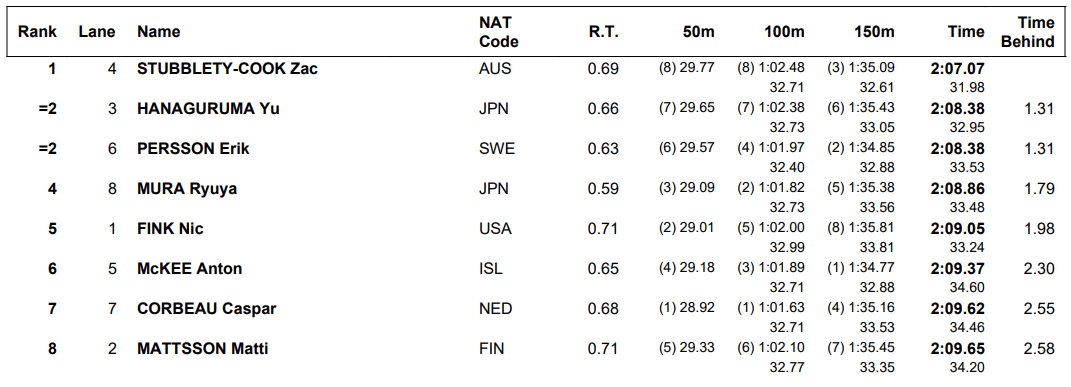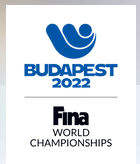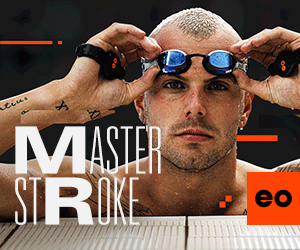World Championships: Zac Stubblety-Cook Comes From Behind to Secure 200 Breast World Title

Editorial content for the 2022 FINA World Championships coverage is sponsored by eo SwimBETTER.
See full event coverage.
Swim faster... faster, with game-changing data insight into your technique. eolab.com #eoSwimBETTER

World Championships: Zac Stubblety-Cook Comes From Behind to Secure 200 Breast World Title
It would have been an enormous upset had Australia’s Zac Stubblety-Cook not left Budapest as the world champion in the men’s 200 breaststroke. After storming to Olympic gold last year, Stubblety-Cook took down the world record last month, becoming the first man to ever break 2:06 in the event. He was seeded first by more than a second entering the World Championships, and his closest rival, Olympic silver medalist Arno Kamminga of the Netherlands, pulled out of the semifinals.
But in the final, Stubblety-Cook was nowhere close to the leaders for the first 100 meters. The 23-year-old from Brisbane is a back-half swimmer, and he was in eighth place at the 100-meter mark in 1:02.48. The leader, the Netherlands’ Caspar Corbeau, was more than eight tenths ahead.
“I think at the first 50, about 35 meters in, I though, ‘Oh no, I’ve underdone this,'” Stubblety-Cook said after the race. “But then I thought, ‘Relax, stick to the race plan, enjoy it. Build through the race.’ That was the plan. I knew the guys would go out fast, especially when they did in the heats and the semis. I knew they were going to go really fast through the first 100, but it was whether I could hold on and stay with them and stay in touch close enough, similar to the Olympics.”
But Stubblety-Cook got back into the race with a 32.61 split on the third length as he moved into third place, and then he crushed the field by almost a second on the way home, splitting 31.98. The last 50, Stubblety-Cook said, is a product of the way he trains daily.
“Jack McLoughlin was one of my training partners last year, and he’s a 400-1500 swimmer,” Stubblety-Cook said. “If that gives you any indication of the type of training we do, it’s a lot, and I really enjoy training hard and training long.”
By the finish, the race was no longer close. Stubblety-Cook touched in 2:07.07, 1.12 seconds off his world record and three tenths behind his semifinal mark of 2:06.72 but quick enough to win the world title by 1.31 seconds. The medal was Stubblety-Cook’s first on the World Championships level after placing fourth in his debut at this meet three years ago.
So much about this experience was new to Stubblety-Cook, who was a contender prior to last year’s Olympics but not the singular man-to-beat, the overwhelming favorite.
“It’s a different feeling to look up at the board and see your name next to the world record,” Stubblety-Cook said. “I think when the event was announced, it was strange, especially in the heats, seeing my name flash up over 2:05.9. It was different but exciting. I’m swimming freely and enjoying swimming, and that’s the most important thing to me.”
Because Stubblety-Cook broke the world record one month out from Worlds and not in Budapest, he was ineligible for a $50,000 USD prize for breaking a global mark during the meet, but Stubblety-Cook said he still had no regrets about swimming as fast as he did at the Australian Championships.
“At the end of the day, a world record is a world record,” he said. “I’m just enjoying swimming and doing what I love. If I was here for money, I don’t think I’d be here for the right reasons.”
As the swimmers behind Stubblety-Cook battled to sort out the medals, two of them ended up touching at exactly the same time. Japan’s Yu Hanaguruma and Sweden’s Erik Persson each recorded times of 2:08.38, and they shared the silver medal. Like Stubblety-Cook, Hanaguruma was also well behind the field at the halfway point in seventh place, but he surged on the way home to make his way onto the podium. Both swimmers earned the first World Championship medals of their respective careers.
“The plan? To be honest, I didn’t really have one. I just tried to swim as fast as I could. It was great to swim against the best, and I’m happy with the medal,” Persson said.
Japan’s Ryura Mura placed fourth in 2:08.86, while American Nic Fink, the gold medalist in the 50 breast and bronze medalist in the 100 breast, placed fifth in 2:09.05. Iceland’s Anton McKee, the leader at the 150-meter mark, faded to sixth in 2:09.37.






